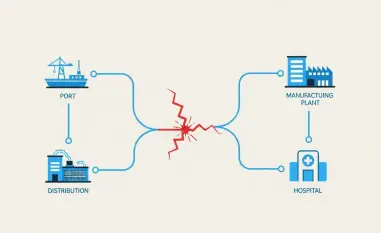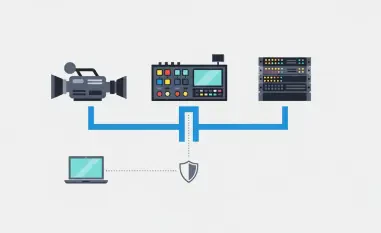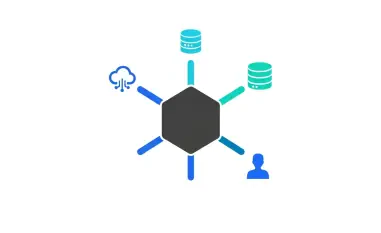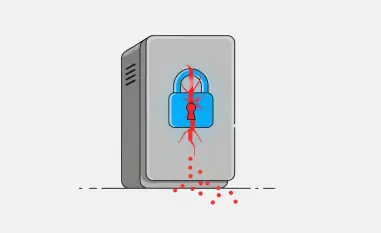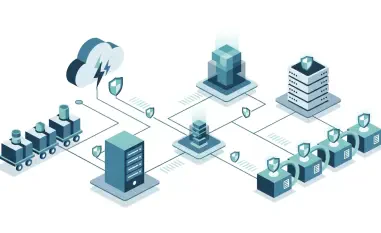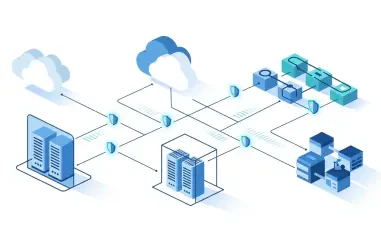In the fast-paced realm of cybersecurity, where threats evolve daily and attackers exploit vulnerabilities at an unprecedented rate, security professionals are constantly seeking tools to stay ahead. Imagine a scenario where a single command can orchestrate an entire penetration testing workflow, from reconnaissance to vulnerability scanning, without the need for manual scripting. Enter Gemini CLI, a groundbreaking command-line interface integrated into Kali Linux, powered by Google’s Gemini AI. This tool promises to revolutionize how penetration tests are conducted by automating repetitive tasks and allowing analysts to focus on strategic insights.
Unveiling the Power of Gemini CLI
Gemini CLI stands as a pioneering open-source solution designed to embed artificial intelligence directly into the terminal environment of Kali Linux. By harnessing natural language processing, it enables security experts to issue simple prompts that trigger complex pentesting operations. This integration marks a significant shift in the cybersecurity landscape, addressing the growing demand for efficiency amid increasingly sophisticated threats.
The relevance of such a tool cannot be overstated in an era where time is often the critical factor in mitigating breaches. Gemini CLI aims to reduce the manual workload of repetitive tasks, such as scanning networks or identifying vulnerabilities, thereby enhancing productivity. Its seamless operation within a familiar platform like Kali Linux ensures that professionals can adopt it without disrupting established workflows.
Diving into Key Features
Streamlining Pentesting Automation
At the heart of Gemini CLI lies its ability to act as an intelligent orchestrator for penetration testing tasks. Through intuitive natural language inputs, users can initiate processes like port scanning with tools such as Nmap, service enumeration, and even vulnerability assessments. This automation eliminates the need for tedious command chaining, allowing for a more fluid and efficient approach to testing.
Beyond simple task execution, the tool excels in generating comprehensive reports from the data it collects. A prompt as straightforward as scanning a target for common web vulnerabilities can result in a detailed output that consolidates findings into an actionable format. This capability frees up valuable time for analysts to delve into deeper analysis rather than getting bogged down by procedural steps.
The efficiency brought by this automation is particularly evident in large-scale assessments where multiple targets or complex environments are involved. By reducing human intervention in routine operations, Gemini CLI ensures consistency in execution while minimizing the risk of errors that often accompany manual processes.
Balancing Control with Automation Modes
Gemini CLI offers two distinct operational modes—Interactive and the fully automated “YOLO” mode—to cater to varying levels of user preference for control. In Interactive mode, users can oversee each step, providing inputs and making decisions as the tool progresses through tasks. This ensures a hands-on approach for those who prioritize precision over speed.
Conversely, the “YOLO” mode unleashes the full power of automation, allowing the AI to handle entire workflows independently after receiving an initial prompt. While this mode maximizes speed, it still maintains transparency by providing visual updates and detailed logs of every action taken. Such features ensure that even in autonomous operation, the tool remains accountable to the user’s oversight.
This duality in operation modes addresses a critical need in penetration testing: the balance between efficiency and accuracy. Professionals can choose the level of involvement that best suits the complexity of their project, making Gemini CLI a versatile addition to any security toolkit.
Harnessing AI for OWASP Top 10 Analysis
Simplifying Vulnerability Detection
One of the standout capabilities of Gemini CLI is its focus on tackling the OWASP Top 10 vulnerabilities through AI-driven insights. By using natural language instructions, security teams can direct the tool to test for issues like injection flaws or broken authentication with minimal setup. The AI not only identifies potential weaknesses but also offers tailored remediation steps for each finding.
This targeted approach simplifies what is often a cumbersome process, especially when dealing with diverse applications or systems. The ability to quickly pivot from detection to actionable advice enhances the tool’s utility in real-time scenarios where rapid response is essential. It effectively bridges the gap between identifying a problem and implementing a solution.
Moreover, the clarity of the guidance provided ensures that even less experienced analysts can understand and act on the recommendations. This democratization of complex testing processes underscores the transformative potential of AI in making cybersecurity more accessible across skill levels.
Enhancing Integration with Kali Linux Tools
Gemini CLI does not operate in isolation; it complements the robust suite of tools already present in Kali Linux, such as sqlmap for SQL injection testing and wfuzz for web fuzzing. The AI adapts dynamically to the configurations and outputs of these tools, providing suggestions that refine the testing process. This synergy amplifies the effectiveness of traditional methods with intelligent automation.
Such integration is particularly valuable in environments where multiple tools are used concurrently to assess a target. Gemini CLI can interpret results from one tool and recommend subsequent actions with another, creating a cohesive workflow. This reduces the cognitive load on analysts who would otherwise need to manually correlate data across disparate outputs.
The result is a more streamlined vulnerability assessment process that leverages both the power of established tools and the innovation of AI. This combination positions Gemini CLI as a force multiplier in the hands of security professionals navigating complex testing scenarios.
Practical Impact in Real-World Scenarios
Gemini CLI proves its worth in actual penetration testing engagements by significantly reducing the time spent on routine tasks. Security professionals can deploy it to handle initial reconnaissance with prompts like scanning a specific IP range for open ports and services, allowing them to focus on interpreting the results rather than executing the scans.
In vulnerability scanning, the tool’s ability to automate checks across multiple vectors saves hours of manual effort. For instance, directing it to assess a web application for common exploits can yield immediate insights, complete with structured findings that guide the next steps. This efficiency is crucial in time-sensitive environments where delays can exacerbate risks.
The strategic impact of these capabilities extends to decision-making, as analysts are empowered to allocate their expertise toward high-level analysis and remediation planning. By automating the grunt work, Gemini CLI enables teams to tackle larger projects with confidence, knowing that foundational tasks are handled with precision.
Addressing Challenges and Limitations
Despite its impressive features, Gemini CLI is not without challenges that warrant consideration. A primary concern is the potential for over-reliance on automation, which may lead to missed nuances that only human judgment can catch. Ensuring that results are critically reviewed remains essential to avoid blind trust in AI outputs.
Integration with diverse environments also poses occasional hurdles, as not all systems or configurations may align seamlessly with the tool’s capabilities. Ongoing development efforts are focused on addressing these compatibility issues, with updates aimed at broadening the scope of supported frameworks and tools over the coming years, from 2025 onward.
Additionally, the accuracy of AI-driven insights is an area under continuous refinement. While the tool performs admirably in many scenarios, complex or edge-case vulnerabilities may require manual intervention to ensure thoroughness. These limitations highlight the importance of using Gemini CLI as a complement to, rather than a replacement for, human expertise.
Envisioning the Future of AI in Pentesting
Looking ahead, AI-driven tools like Gemini CLI are poised to redefine penetration testing through advancements in natural language processing and deeper integrations with existing security ecosystems. Future iterations could offer even more nuanced understanding of prompts, enabling finer control over testing parameters and outcomes.
The potential for broader compatibility with other platforms and tools beyond Kali Linux opens exciting avenues for cross-environment applications. As AI continues to evolve, its role in preemptively identifying emerging threats and suggesting proactive defenses could become a cornerstone of cybersecurity strategies.
Ultimately, the trajectory of such technologies suggests a future where efficiency and effectiveness in penetration testing are dramatically enhanced. The ongoing evolution of Gemini CLI and similar innovations will likely shape how security professionals approach their craft, making AI an indispensable ally in safeguarding digital assets.
Reflecting on the Verdict
Reflecting on the evaluation, Gemini CLI emerges as a transformative tool that reshapes the landscape of penetration testing with its innovative automation and AI-driven insights. Its ability to streamline workflows and integrate with established Kali Linux tools proves to be a significant advantage for security professionals. Moving forward, the focus should be on enhancing its compatibility and refining AI accuracy to address current limitations. As a next step, practitioners are encouraged to experiment with this tool in controlled environments to understand its full potential, while developers should prioritize user feedback to drive iterative improvements. The journey of integrating AI into cybersecurity workflows has only begun, and staying engaged with such advancements will be key to maintaining robust defenses against evolving threats.


